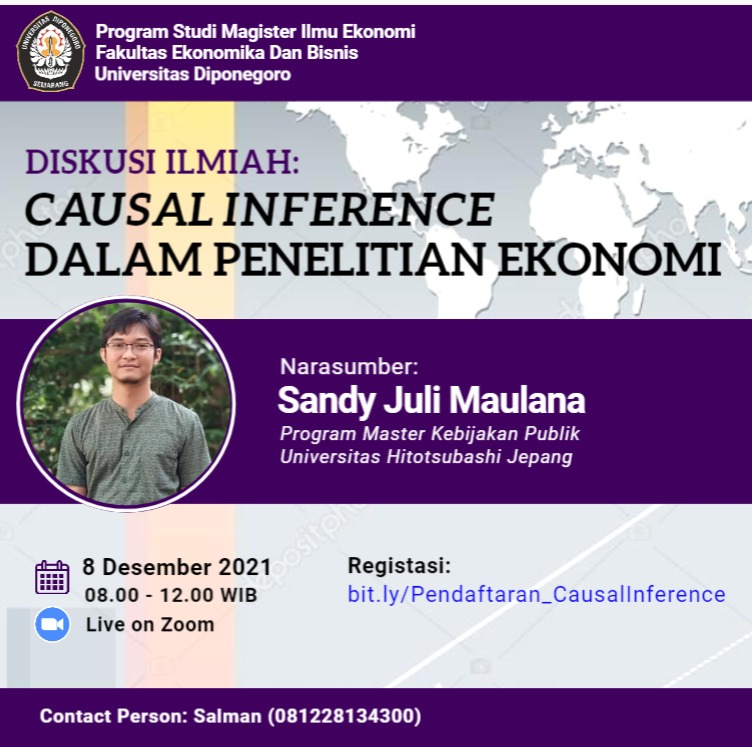Causality is a phenomenon that occurs in all disciplines, especially in economics. Hoover (2012) states that causality has been the concern of economists since at least David Hume in the 18th century. Hume is the touchstone for all subsequent philosophical analyzes of causality. Hume is often considered a skeptic of causality, however, as an economist, he gives high priority to this knowledge of causality.
In commenting on the 2021 Nobel Prize in Economics for causal inference, Andrew (2021)[1] stated that causal inference is a major issue for social sciences, especially economics. The effect of an intervention on an individual (can be a person, company, country or any entity affected by the treatment) is defined as the difference in outcome (outcome), comparing what will happen because of the intervention (intervention) and what will happen due to control (control), or the difference between these two factors. The problem is that causal effects cannot be measured directly, because not all potential individual outcomes can be observed. This is a fundamental problem of causal inference and is at the heart of modern economics.
In economic phenomena, Varian (2016) states that “unfortunately” not all regressions are able to produce satisfactory estimates, especially in covering causal effect relationships between variables. Some of the analyzes exemplified include: the effect of advertising spending on sales, the effect of fertilizer (fertilizer) on crop yields, or the effect of education on income (income), and many other similar cases.
Realizing that this is a fundamental issue in Economics, as well as responding to the latest developments, Master of Economics Study Program, Diponegoro University held a series of Scientific Discussions entitled “Causal Inference in Economic Research”. This series program is expected to be able to facilitate students in expanding their mastery of economic research methodologies, especially in responding to the latest scientific developments. This Scientific Discussion will be held on Wednesday, Desember 8, 2021, online from 08.00 – 12.00 WIB.
The resource person in this activity is Sandy Juli Maulana – alumni of the Undip Faculty of Economics and Business, currently taking a Masters Program in Public Policy at Hitotsubashi University, Japan.
Participants can register via the link:
For further information, please contact:
081228134300
[1] https://statmodeling.stat.columbia.edu/2021/10/11/comments-on-a-nobel-prize-in-economics-for-causal-inference/

